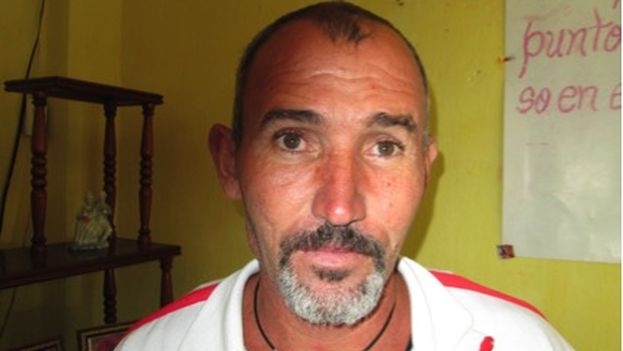
![]() 14ymedio, Havana, 15 March 2016 – Four Cuban political prisoners will leave this week for the United States, a decision that the Cuban government has taken a few days before President Barack Obama’s arrival on the island. The departure of the opponents is the result of efforts undertaken by the Catholic Church, as reported to 14ymedio by relatives of the inmates.
14ymedio, Havana, 15 March 2016 – Four Cuban political prisoners will leave this week for the United States, a decision that the Cuban government has taken a few days before President Barack Obama’s arrival on the island. The departure of the opponents is the result of efforts undertaken by the Catholic Church, as reported to 14ymedio by relatives of the inmates.
Opponents Vladimir Morera Bacallao, Jorge Ramírez Calderón, Niorvis Rivera Guerra and Aracelio Riveaux Noa were transferred last week to the hospital of the Combinado del Este Prison in Havana, from where they will depart on Tuesday and Wednesday mornings.
Librado Linares, leader of the Cuban Reflection Movement, told this newspaper that he had been able to speak by telephone with them to confirm the news. “They told me that are flying to the United States but without their families”, said the former prisoner of the Black Spring. According to the opposition, the authorities promised that their families “may leave, but later.”
In the eastern part of the country, activist Lisandra Robert, a member of the Patriotic Union of Cuba (UNPACU) with responsibility for political prisoners, confirmed that “the relatives of Aracelio Riveaux Noa and Niorvis Rivera Guerra were visited by someone who identified himself as a member of the Catholic Church, accompanied by an official of the Interior Ministry.”
During the visit, the two men explained to the relatives of the prisoners that “an agreement” had been reached to release the prisoners to the United States. The condition for the families to be able to accompany them [later] was that they depart “immediately” for Havana, and from there fly to the US.
Robert explained that Aracelio Riveaux Noa included “in the list to travel” several family members but only his mother and three nephews were accepted. In the case of Niorvis Rivera Guerra, his wife and children will also emigrate.
These four political prisoners were among a group of 53 inmates who were released in January 2015, after negotiations between the governments of Cuba and the United States became public. Later, they were again returned to prison and convicted for their activism in the streets.
